Cats are probably the sleepiest of all household pets. But there’s a limit to how much the cat can sleep.
Does your cat lie around more than usual? Do they look sleepy and fatigued all the time? If your cat is not interested in what is going around and seems to have become less inactive, the problem could be lethargy. But what is lethargy and should you be worried? Read on to discover the causes of lethargy in cats.
Table of Contents
- What Is Lethargy?
- Symptoms of Lethargy
- Causes of Lethargy in Cats
- Signs that Your Cat Needs to See a Vet
What Is Lethargy?
Lethargy is a feeling of fatigue that indicates a lack of physical and mental energy. Your cat will struggle to stay awake or do activities. Instead, your pets will spend most of their time sleeping. Lethargic conditions are not very specific but common symptoms.
Lethargy occurs in varying degrees, such as:
- Mild – the cat plays less than usual
- Moderate – the cat doesn’t play but sleeps a lot.
- Severe – The cat doesn’t want to move and struggles to hold its head up.
The conditions are likely to begin as mild and progress into severe if you don’t get treatment for the cat.
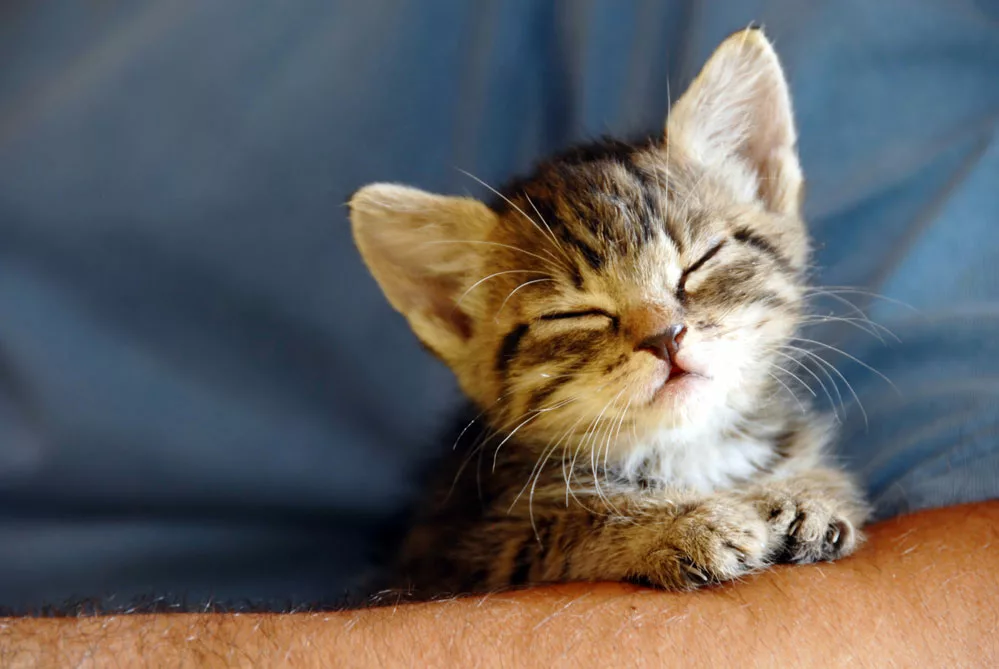
(sleepy kitten)
Symptoms of Lethargy
Lethargy is a symptom that indicates a lack of energy and overall weakness. The usual symptoms include:
- Increased inactivity
- Loss of interest in surroundings
- General weakness and lack of energy
- Drowsiness
Sometimes, lethargy is not a problem and may happen because your cat is becoming older. However, if the symptoms appear suddenly, something is wrong. In most cases, your cat will show the following symptoms.
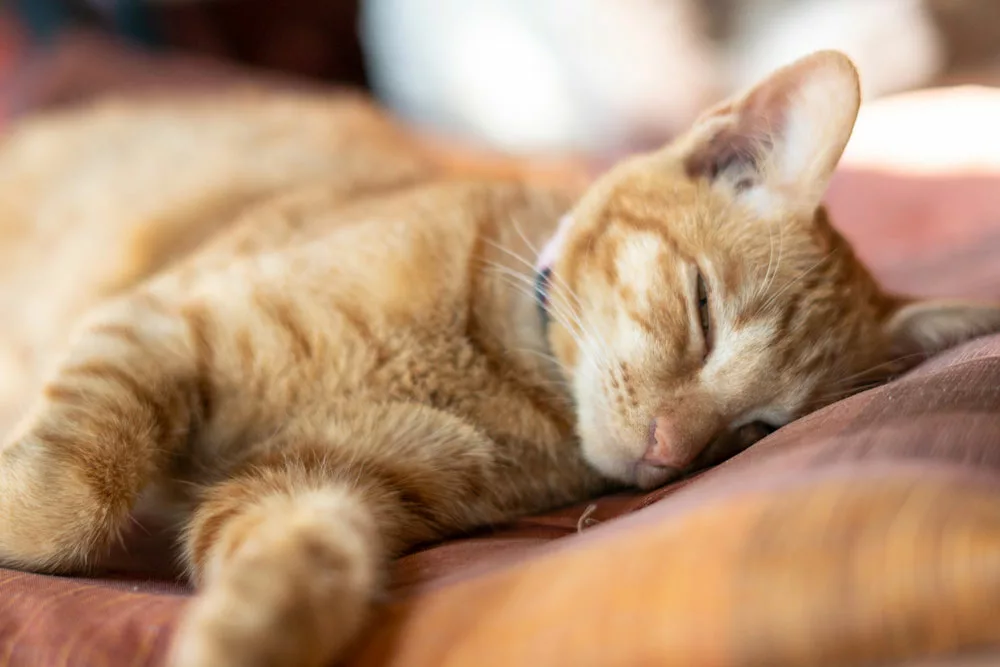
(cat sleeping)
Increased Affection
When your cat gets unwell, it may want to receive affection and reassurance from you. You will notice your cat becoming clingy and always wanting your attention.
Hiding Behaviors
While some cats may want reassurance, others will seek isolation and loneliness. So, your cat will start to hide and act weird.
Weight Loss or Gain
Sick cats typically have increased or reduced appetite and activity levels. Appetite changes can boost or hinder metabolic rate and blood sugar concentration. The results will be weight changes, either a gain or loss.
Dull Coat or Hair Loss
The discomfort that often comes with lethargy leads to anxiety and stress. Anxious cats become more concerned with self-grooming, leading to hair loss. Others may avoid all forms of self-grooming, causing an unkempt coat.
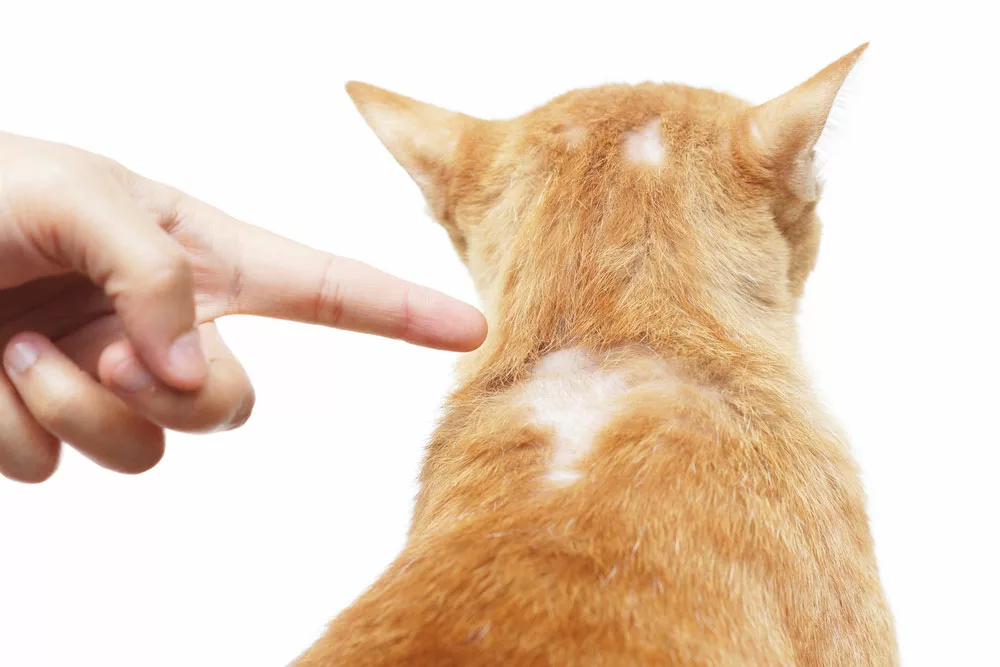
(cat with hair loss)
Unusual Sleeping Positions
Lethargic cats will sleep in any position that provides relief from pressure, discomfort, and pain. Something is wrong when you notice your cat taking an unusual sleeping position.
Causes of Lethargy in Cats
Common Minor Problems:
- Intestinal Parasitic Infection: Intestinal parasitic infection is when worms attach themselves to the inner lining of the cat’s stomach. The worms will lay eggs that then enter the cat’s digestive tract. The resulting infection can cause loss of weight and diarrhea.
- Arthritis: Arthritis is also called degenerative joint disease and happens due to the deterioration of the cartilage that protects bones. Cartilage deterioration allows bones to wrap against one another, resulting in pain and inefficient joint movement.
- Respiratory Infection: Cats can suffer from an upper respiratory infection. The infection occurs due to bacteria and viruses that target the sinuses, throat, and nose. Respiratory infections in cats are similar to colds but may be more severe.
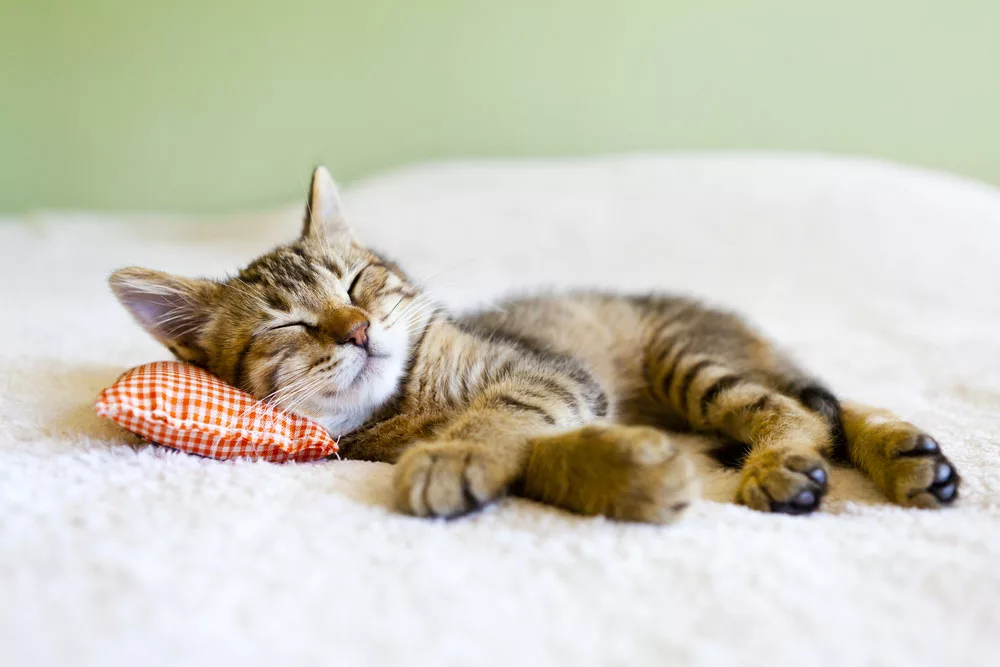
(The Sleeping Cat)
Common Serious Conditions:
- Diabetes: The cat’s pancreas can’t properly regulate sugar in the body.
- Viral infections: Many viruses can target the cat’s health, but the most common are feline immunodeficiency virus, herpes, feline leukemia, feline distemper, and feline calicivirus.
- Abscesses: The condition happens when the cat fights a localized bacteria infection and typically appears in pus.
- Heartworm: The condition happens when a parasite attacks the cat.
- Anemia: The condition happens when the cat has a decreased number of red blood cells.
- Urinary tract infections: Parasites and viruses can target your cat’s bladder and urethra, obstructing and preventing proper bladder emptying.
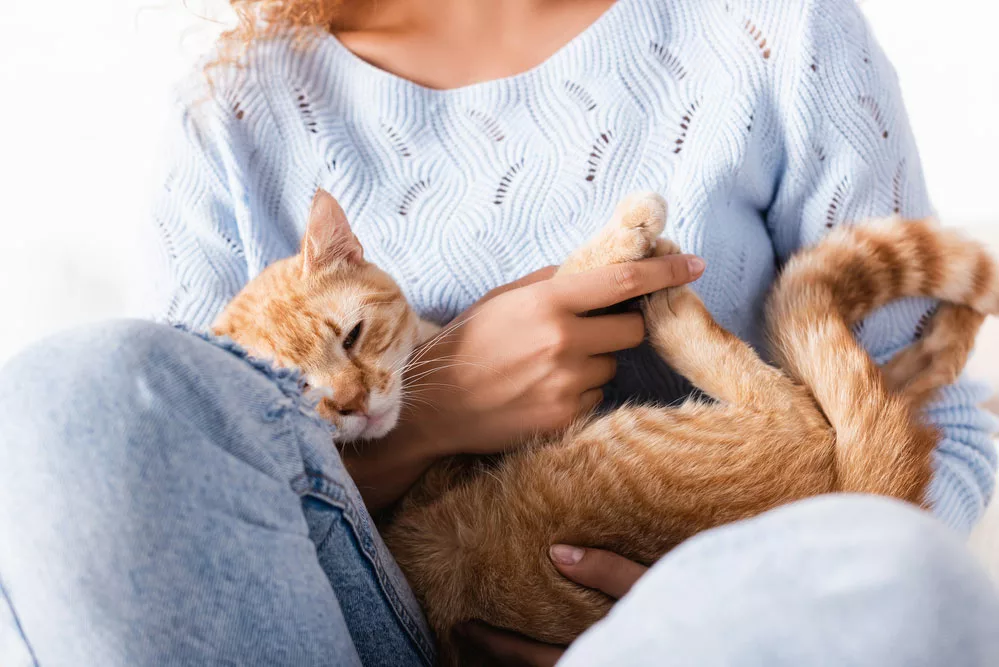
(A cat that feels under the weather)
Rarer Serious Conditions:
- Heatstroke: The cat’s body temperature becomes dangerously high.
- Poisoning: For example, a cat accidentally takes medicine can produce poisoning symptoms.
- Heart disease: Most feline heart disorders develop during the animal’s life, but some heart conditions appear at birth.
- Organ failure: Your cat may also become lethargic due to organ failure.
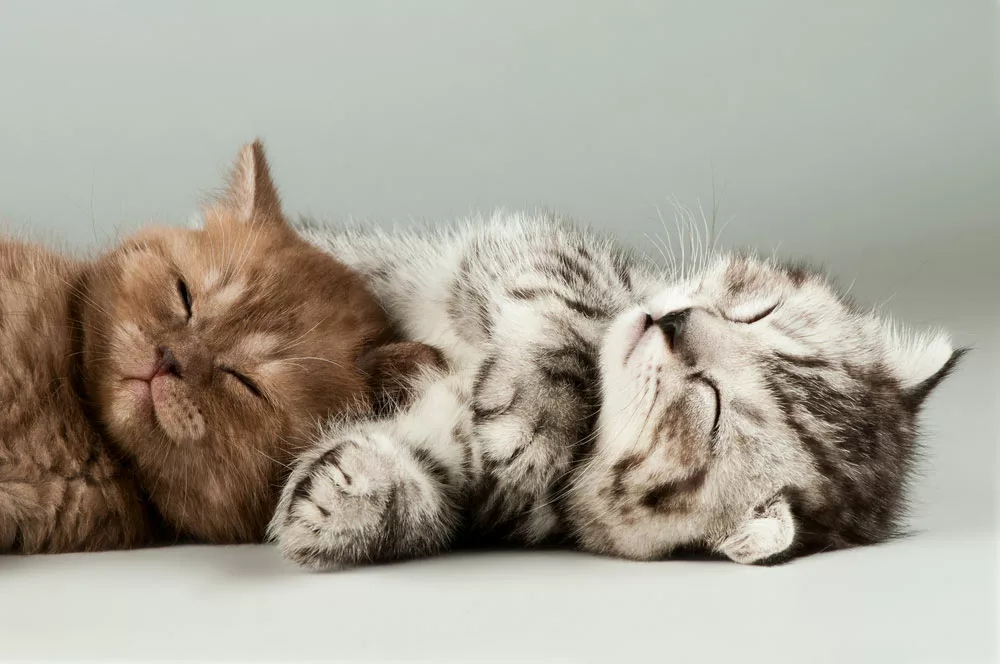
(Two sleepy cats)
Signs that Your Cat Needs to See a Vet
Not every sign of lethargy in cats requires a response from you.
However, if the condition persists for more than one or two days, the cat must see a veterinarian.
Also, if lethargy symptoms continue to worsen, a visit to the vet is necessary.
You also need help if other symptoms and signs of illness accompany the lethargy. For instance, the cat may have a fever, sneeze, diarrhea, and vomiting.
In other cases, the cat will show decreased appetite and breathing difficulties.
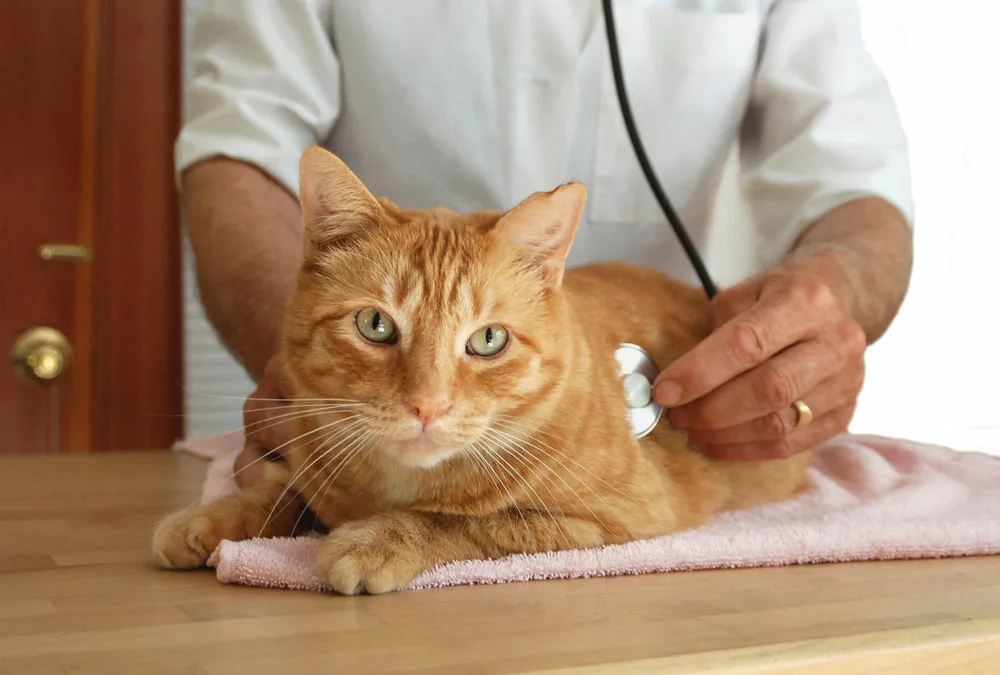
(cat at the vet)
Conclusion
Lethargy is a complex condition that has multiple causes. The condition causes your cat to become extremely weak and avoid contact with other people and pets in your household. If you don’t respond quickly, the condition can become dangerous.
Hence, knowing the causes of Lethargy in cats and early intervention is necessary to protect your cat.
